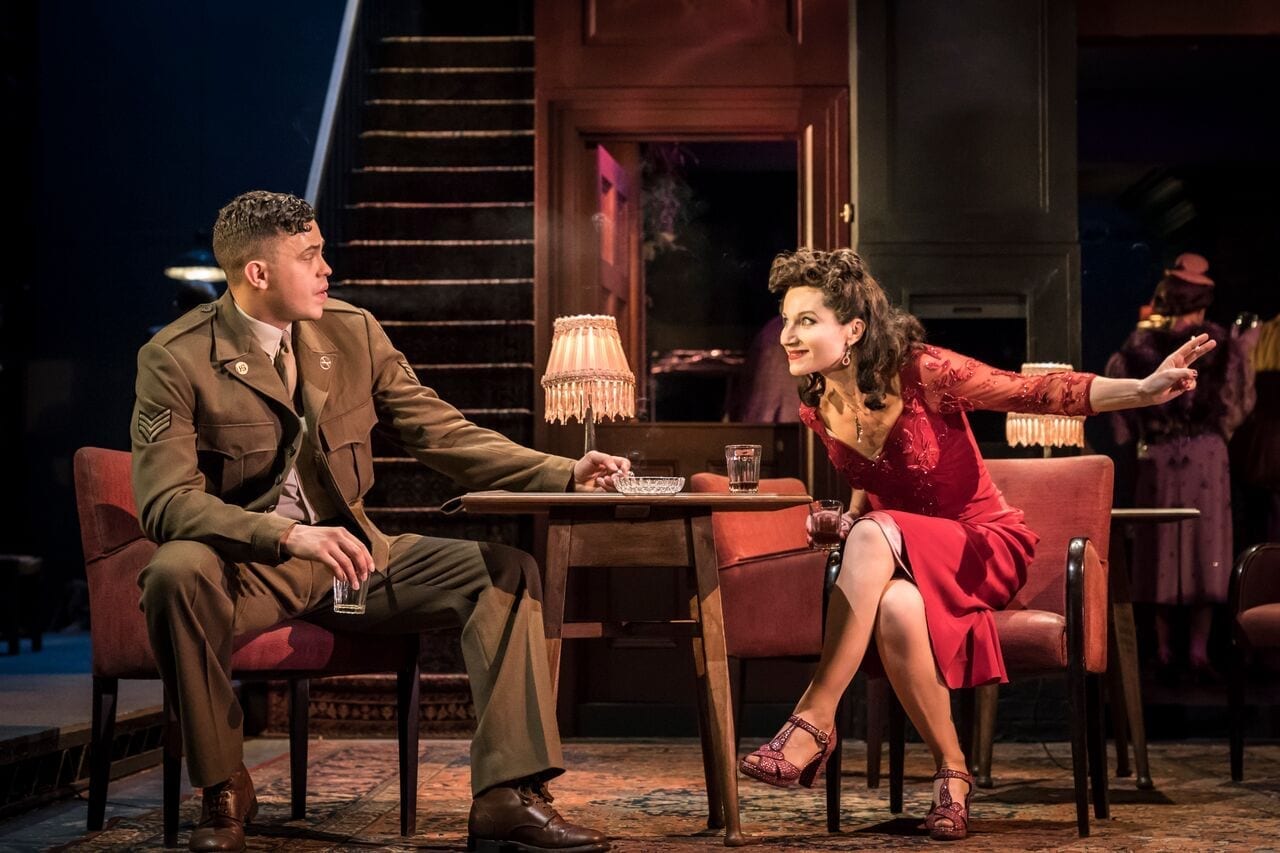Late in Joe Hill-Gibbins’s National Theatre production of Rodney Ackland’s Absolute Hell, a guest at the La Vie en Rose club in Soho waves a gun above his head. “You’ll never escape!” he tells the cowering party-goers. There are moments in this worthy but frustrating show in which the threat seems to be leveled at the audience as much as the debauched club members; at over three-hours running time, Ackland’s work demands of the viewer a stamina it does not sufficiently reward.
The play begins in the last days of World War II. London has endured the Blitz, and rationing continues to contract the menu at La Vie en Rose. At owner Christine Foskett’s (Kate Fleetwood) club, artists mix with servicemen, black market dealers and prostitutes. Christine’s American lover has recently abandoned her, and she finds a mirror of her distress in failed writer Hugh Marriner (Charles Edwards), whose near decade-long relationship is unraveling. Around the central pair wheel a massive cast of mid-century London types, all seeking in alcohol and parties the oblivion which the gunman has declared unattainable.
The National Theatre has spared no expense in staging Ackland’s work. Period details in the set—the multi-story interior of the club—and costumes are on point, and occasional references to bomb damage and the horrors of concentration camps in mainland Europe relieve the monotony of the characters’ debauches. The moments of respite are brief, however, as watching the show is like being the only sober person on a night out; drunks start out funny, but rapidly become boring. Ackland’s efforts to portray milieu sacrifice plot, and while the play ably communicates its characters’ loneliness, stories of isolation are poorly served by large casts. The club members’ superficial connections mean that the absence of almost any particular individual would be inconsequential. The production asks us to care for people who do not care for each other, and are mostly passive. Given the strong performances, the apathy which the characters engender is unfortunate.
The play brings to mind another marathon-long work: Eugene O’Neill’s Long Day’s Journey into Night. Both shows are minimally plotted, and consciously repetitive. In O’Neill’s work, however, one is moved by the Tyrone family’s tragedy. The willfully shallow and back-biting characters in Absolute Hell provoke no such sympathy, as the play misses the opportunity to examine their flaws as symptoms of trauma and loss. The mute, somnambulant prostitute who endlessly circles the stage is an apt metaphor for the generation Ackland represents: sold, spent, and unchanging. It is a pity that the show does not delve more deeply into the pain she embodies.
The National Theatre’s production of a flawed script demonstrates that you can render a scene with the most outlandish colours and impossible angles, but ultimately, it’s still a static picture. A play demands progress.

